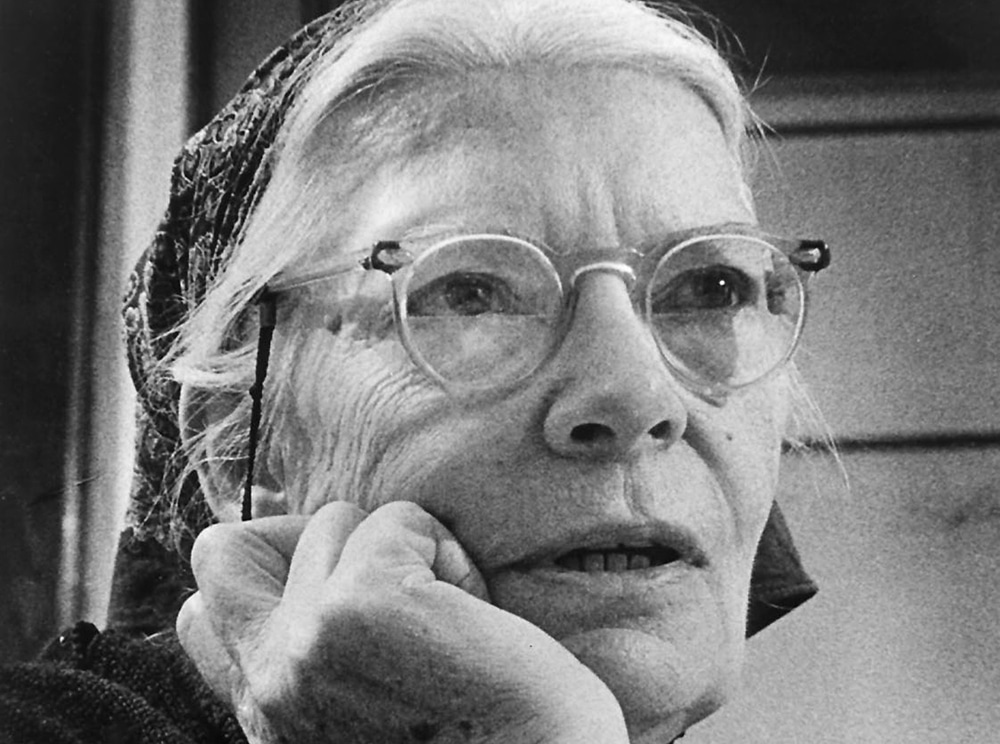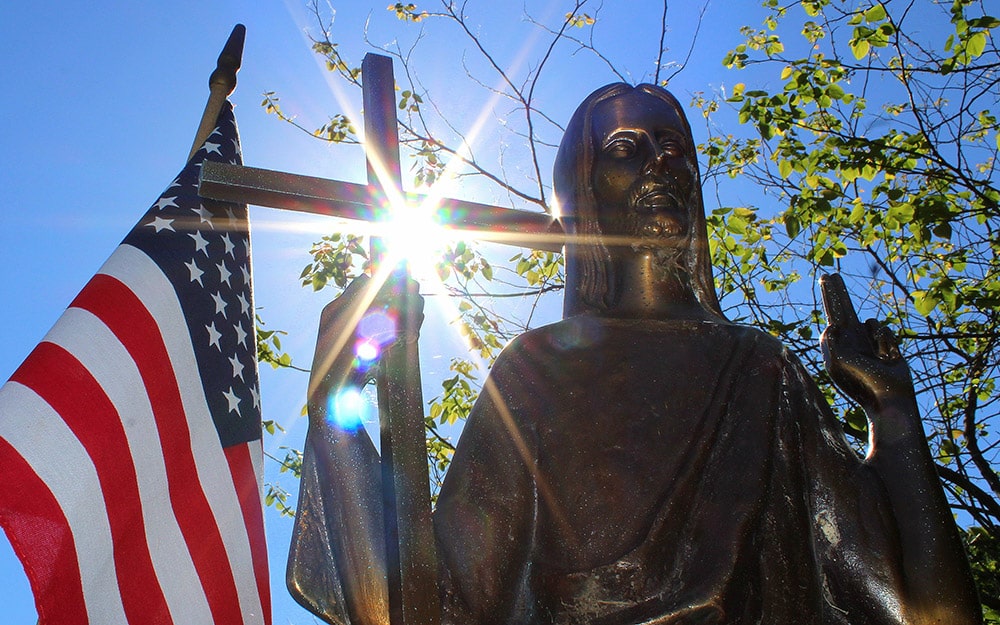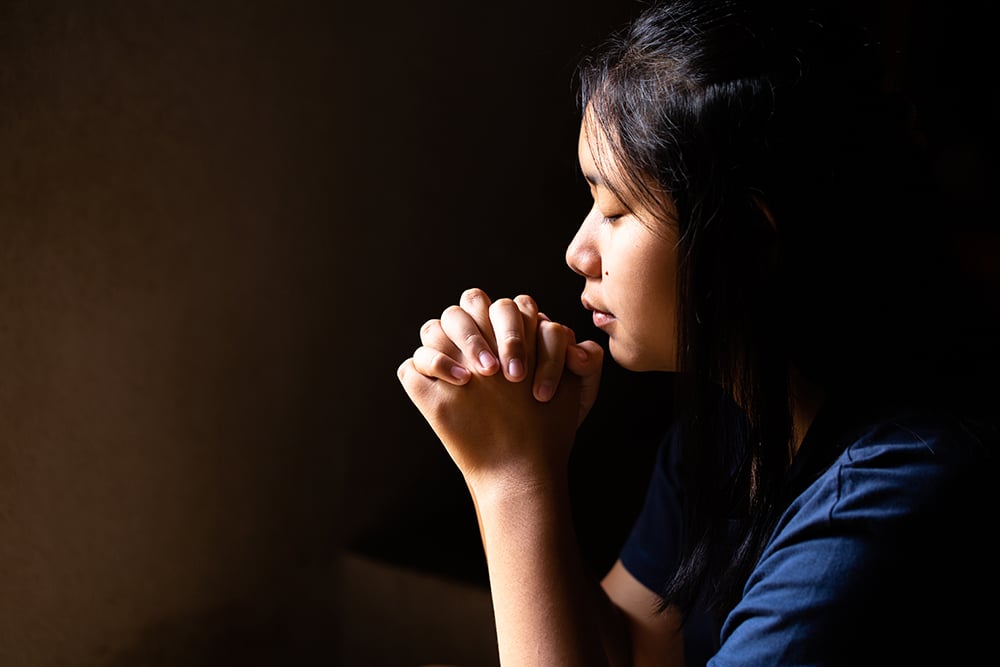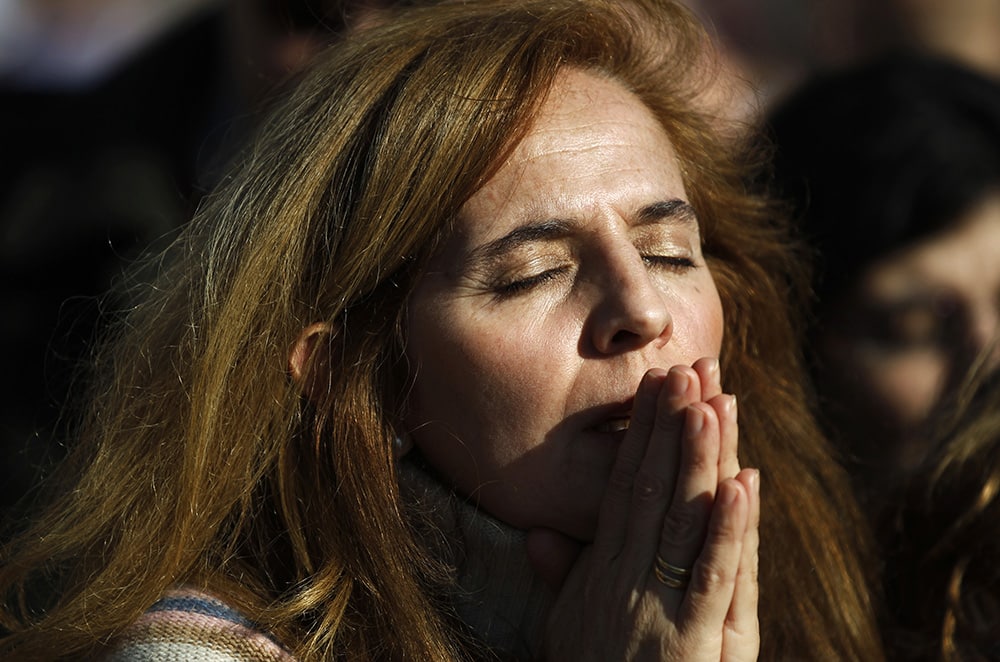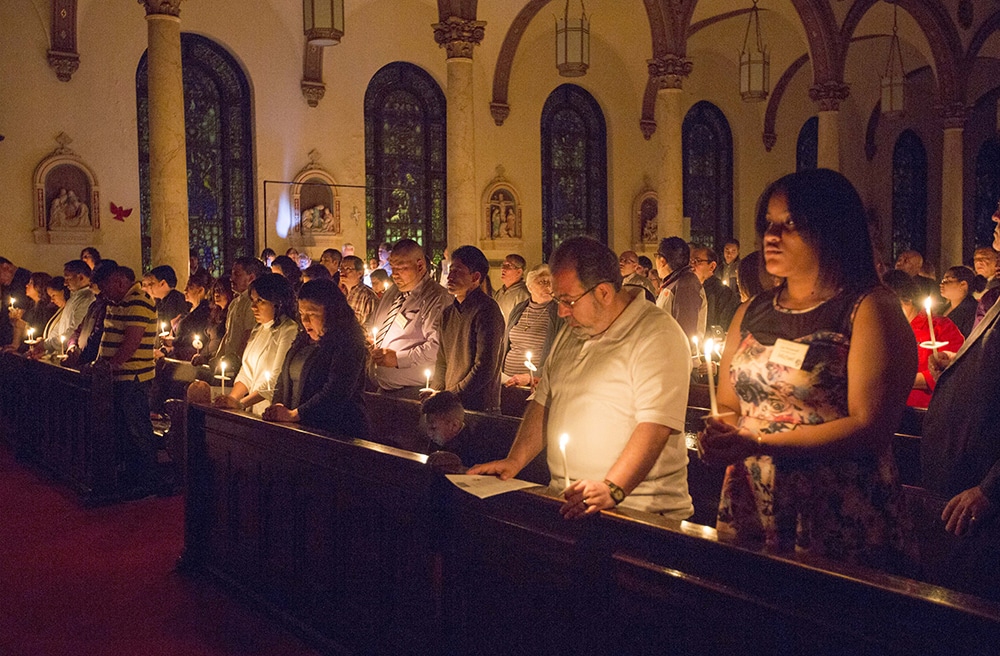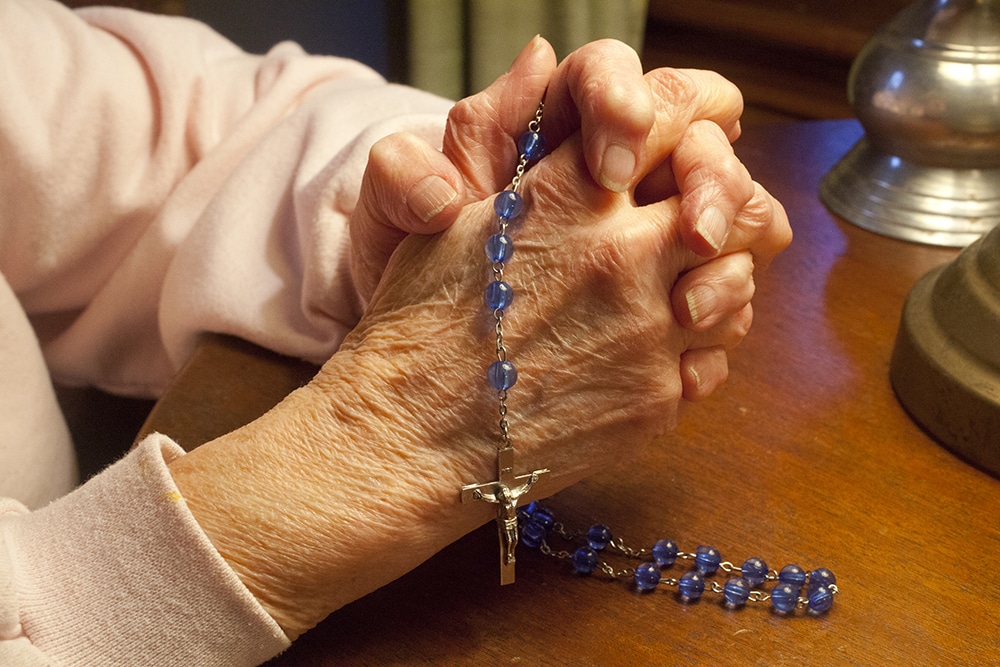As a lifelong Catholic, I’m somewhat ashamed to admit that when Pope Francis mentioned Servant of God Dorothy Day in his remarks during a historic address to a joint session of Congress on Sept. 24, 2015, I did a double-take and thought to myself the names of three other women I wished he would have mentioned instead.
Standing on the lawn with other invited guests assembled outside the Capitol that morning, I listened to the pope’s list of four people he held up as “great Americans.” Alongside President Abraham Lincoln, Dr. Martin Luther King Jr. and Thomas Merton, Pope Francis pointed to the life of Dorothy Day. “In these times when social concerns are so important, I cannot fail to mention the Servant of God Dorothy Day, who founded the Catholic Worker Movement,” Pope Francis said to a nation tuned in to our screens for his wisdom. “Her social activism, her passion for justice and for the cause of the oppressed were inspired by the Gospel, her faith and the example of the saints.”
I remember thinking to myself that brisk morning, “I should really do some research on Dorothy Day.” In the ensuing years, having relocated to Los Angeles and, finding myself in a new station of family life, I sometimes wonder why it took me so long to come to know this remarkable woman. Around me each day, I struggle — as I’m sure Dorothy Day did — to understand the tremendous disparity of wealth that surrounds me. I struggle to serve my growing family. And I struggle to consciously live Jesus’ radical call to total self-gift.
My search for understanding of Dorothy Day’s spirituality and legacy recently expanded after viewing the brilliant film “Revolution of the Heart: The Dorothy Day Story.” Airing nationwide on public television stations starting this month for Women’s History Month and now available on DVD, this hourlong documentary by Martin Doblmeier and Journey Films offers a sweeping look at the life of a complex convert to Catholicism whose accomplishments included intense social engagement and a consistent preferential option for the poor, but also abortions and criminal arrests.
In the opening moments of the documentary, Doblmeier, whose recent work has looked at the lives of other significant religious figures, juxtaposes Day’s maternity and her activism. “In many ways, Dorothy Day was a typical grandmother,” Doblmeier’s narration opens as black and white video footage of a matronly Day gives way to family photos of her at play with and reading aloud to her grandchildren. “I see my grandmother as someone who was very ordinary but also very extraordinary,” offers the voice of Martha Hennessey, Dorothy Day’s granddaughter and the first of many of the documentary’s interviewees who each offers a personal or theological perspective on her life.
Quickly, this familial perspective gives way to a thumbnail sketch of the more controversial aspects of the life of this woman who explicitly asked not to be remembered as a saint. We are introduced to Day’s work in protest of war and nuclear proliferation, her creation of Houses of Hospitality for those most in need through her Catholic Worker Movement, and even her placement on the FBI watchlist as a “dangerous American.”
The spiritual evolution that took Dorothy Day from a socialistic journalist to a committed Catholic and mother unfolds throughout “Revolution of the Heart.” Our guides include two of her granddaughters: Martha Hennessey, an activist herself, and Kate Hennessey, author of the memoir “Dorothy Day: The World Will Be Saved By Beauty, An Intimate Portrait of My Grandmother” (Scribner, $27.99). The women speak not only of Day as a single parent to their mother, Tamar, and a loving grandmother of nine, but also to her commitment to a radical living out of the Gospel.
No consideration of Dorothy Day’s life would be complete without a close look at her co-founding of the Catholic Worker Movement alongside partner Peter Maurin. Here, Day’s biographer, Robert Ellsberg, himself a former editor of The Catholic Worker newspaper, and Martin Sheen, a frequent visitor to Catholic Worker houses of hospitality, share from their encounters with her. Among the additional theological perspectives provided are Harvard’s Cornel West and Cardinal Timothy Dolan of New York, who shares enthusiastically in the film that “we’d love to see Dorothy made a saint.” Many other interviewees share aspects of Day’s history through engaging personal recollections.
One wonderful aspect of documentary as a film form is the ability to see and hear from the subject themselves. This is especially remarkable when the subject is a candidate for canonization. In “Revolution of the Heart,” Dorothy Day’s prolific writings frequently are given voice by Academy Award winner Susan Sarandon. But viewers are additionally treated to archival photos and video from Day’s personal footage and her many media appearances, as well as offerings from Marquette University’s Dorothy Day/Catholic Worker collection, under the direction of archivists Phil Runkel and Amy Cary.
“Revolution of the Heart” does not touch upon every aspect of Day’s long and storied life, but it most certainly offers enough perspective that viewers of faith will likely find themselves spiritually challenged and edified. In one poignant interview, Dorothy Day posits, “If you take the Lord’s words, you’ll find they are pretty rigorous. The Sermon on the Mount may be read with great enjoyment, but when it comes to practicing it, it really is an examination of conscience to see how far we go.” The woman who was convicted enough to total pacifism that she objected to World War II is seen being arrested as a silver-haired grandmother. Her commitment to her beliefs seemed only to solidify as the world around her grew increasingly complex.
I found myself pausing “Revolution of the Heart” multiple times to consider my own life through the prism of what I have learned about Servant of God Dorothy Day since that September morning in 2015 when Pope Francis first pointed me toward her worthy example of lived sanctity. Will I ever be faithful and courageous enough to align myself as radically as Dorothy Day did to the teachings of Jesus Christ? I am neither yet a grandmother nor an activist. But with Dorothy’s “great American” example ever ahead of me, I recognize I do not walk this path alone.
Lisa Hendey writes from California.

